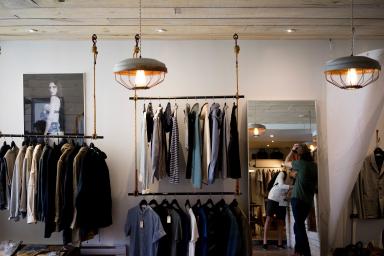

Protecting Business Premises From New Threats
Until recently, guarding against personal and property theft was mainly a concern for shop owners. But now, there are new and complicated security threats, including online fraud scams, the coronavirus pandemic, and street riots.
What are the biggest concerns for business owners? Antonio Pérez Turró is Chairman of the Spanish Association of Security Companies (AES). He warns that “if someone had asked that question a year ago, we’d only have been talking about finding solutions and technical means to minimise risk to people and property against burglary and robbery.” But now, we’re also facing others such as online threats, “which are becoming more and more common,” and pandemics and anti-social behaviour, of which “city-centre businesses are collateral victims.”
Pérez Turró says that this complex panorama will soon lead to a rethink about how to protect premises in an integrated way, combining different security solutions to make them effective, “without duplicating efforts and wasting resources, which are always limited but even more so in these difficult times.”
He believes that the process has to start with “physical security (doors, building compartmentalisation, safe and secure storage) that’s properly thought out, designed, manufactured and installed.” And it has to used together with the necessary electronic security systems, “which now have to include access and occupancy control.” All this has to be done with “properly tested and classified products and solutions, compliant with current technical standards and European standards to certify the installed systems’ reliability level.”
But protecting business also means ensuring the security of payments and cash transfers. Pérez Turró says that these aspects can be secured through “mass adoption of smart and properly tested and certified payment systems, compliant with UNE EN standards.” In this respect, “security for online transactions will be increasingly important, and businesses urgently need to implement cybersecurity measures.”
New Trends
Anna Aisa Biarnés is the Manager of the Catalan Association of Security Companies (ACAES). She says that security is evolving towards an integrated and resilient strategy, in which versatility is fundamental. “The healthcare crisis has led to increased investment in systems and devices for dealing with new risks and threats and ensuring the safety of staff and clients.” Systems that allow that can perform functions such as “temperature checks, occupancy control, queue management, social distancing monitoring, disinfection and air renewal, among others.” At the same time, the pandemic has caused people to change their behaviour. For example, shopping online more, “with the risks that that entails.”
This expert also refers to how “city-centre premises in Spain have recently had to deal with the consequences of rioting, which have become another challenge for security managers to cope with.”
Changing Experiences
Luis Asunción Pérez is Transformation and Customer Development Manager at Prosegur Security. He explains that the way we shop or experience a store has changed a lot in the last year. “In this new context, we’ve developed a series of solutions with a lot of technology to enable companies to adapt their business environments to the new requirements. Now, we can check that people are wearing masks and have them fitted properly, check their temperature, and manage occupancy with the support of our SOC (Security Operation Centre) working together with our specialised teams present in stores.”
Asunción also points out that “in recent months, we’ve moved ahead with implementing deep learning processes. For example, now we can use that to identify store areas with high customer footfall, and display that data as heat maps, or monitor the busiest times in the store, to ensure that there’s enough staff present.” One change that really stands out is the growth in camera installation. “Cameras enable us to better monitor the space we’re protecting, always backed-up by our security staff in the SOC who are in constant contact with the security guards in the stores.”





